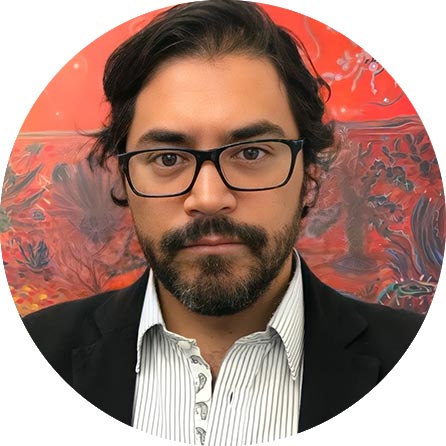WEBINAR
Adaptation and response of health institutions in Mexico during the COVID-19 pandemic. Capacities tested in the context of shifting and complex scenarios.
Background:
Background:
The SARS-CoV-2 that caused the COVID-19 disease, challenged the institutional capacities of public health systems to cope with and adapt to the abrupt and complex changes in the pandemic context.
The case of Mexican government was no exception. Through the various institutions that comprise the health sector, they implemented strategies to prevent the spread of the virus, expand hospital infrastructure, equip and train medical personnel that were at the front-line. They also worked in simplifying administrative procedures and services to provide faster medical care for the infected and potentially more vulnerable population, as well as to implement mitigation measures to address the profound economic and social consequences of confinement and mobility restrictions.
These changes implied transformations within the administrative structure that impacted the organizational structures, redefined functions and adjusted the applicable regulations. It was also necessary to generate cooperation mechanisms abroad, interactions with international organizations and the rest of the countries to share information about the registration and behavior of the virus, as well as prevention protocols and emerging treatments for patient care.
How does the organizational schemes and processes in which health care institutions operated prior to the pandemic were modified? How were inter- and intra-institutional efforts coordinated to address the health emergency? What lessons were learned and how can we improve the government’s capacity to prevent, act in due course and adapt to complex and changing scenarios?
These are some of the issues that will guide the exchange of ideas and experiences accumulated in Mexico. The above in order to stress the importance of having institutions with the organizational and administrative capacity to respond to changes in their environment. It is also important to rely on scientific evidence and international cooperation, to assume strategic perspectives in the planning and management of public health and social protection policies. This is a necessary condition in our times, so we can face the only certainty we have: that everything changes, and nothing remains, as Heraclitus stated.
The SARS-CoV-2 that caused the COVID-19 disease, challenged the institutional capacities of public health systems to cope with and adapt to the abrupt and complex changes in the pandemic context.
Leer más
The case of Mexican government was no exception. Through the various institutions that comprise the health sector, they implemented strategies to prevent the spread of the virus, expand hospital infrastructure, equip and train medical personnel that were at the front-line. They also worked in simplifying administrative procedures and services to provide faster medical care for the infected and potentially more vulnerable population, as well as to implement mitigation measures to address the profound economic and social consequences of confinement and mobility restrictions.
These changes implied transformations within the administrative structure that impacted the organizational structures, redefined functions and adjusted the applicable regulations. It was also necessary to generate cooperation mechanisms abroad, interactions with international organizations and the rest of the countries to share information about the registration and behavior of the virus, as well as prevention protocols and emerging treatments for patient care.
How does the organizational schemes and processes in which health care institutions operated prior to the pandemic were modified? How were inter- and intra-institutional efforts coordinated to address the health emergency? What lessons were learned and how can we improve the government’s capacity to prevent, act in due course and adapt to complex and changing scenarios?
These are some of the issues that will guide the exchange of ideas and experiences accumulated in Mexico. The above in order to stress the importance of having institutions with the organizational and administrative capacity to respond to changes in their environment. It is also important to rely on scientific evidence and international cooperation, to assume strategic perspectives in the planning and management of public health and social protection policies. This is a necessary condition in our times, so we can face the only certainty we have: that everything changes, and nothing remains, as Heraclitus stated.
academic activity
Date
June 28th
Start
10:00 hrs
Mexico City (UTC -5)
Modality Via online through the platform Zoom
Upon registration, you will receive a confirmation email within the link to join the webinar
Start in:
Objective of the activity:
Objective of the activity:
To establish a meeting point between officials and academics from the region, in order to reflect on Mexican health institutions and the necessary adaptive and response capabilities faced with changing and complex scenarios, such as the COVID-19 pandemic.
To establish a meeting point between officials and academics from the region, in order to reflect on Mexican health institutions and the necessary adaptive and response capabilities faced with changing and complex scenarios, such as the COVID-19 pandemic.

Agenda

Daisy Corrales Díaz
Former Executive Director
10:00 to 10:05Welcome
 Carlos Iván García
Carlos Iván García
CAOSA Specialist
10:05 to 10:10Summary of the situation and aim of the activity

Oliver Meza
Centre for Economic Research and Teaching (CIDE)
10:10 to 10:30Lessons from the pandemic in public health institutions in Mexico

David Kershenobich Stalnikowitz
National Institute of Medical Sciences and Nutrition "Salvador Zubirán"
10:30 to 10:50Lessons learned from COVID-19 care from the working groups and hospital conversion.

Hortensia Reyes Morales
Research Center for Health Systems of the National Institute of Public Health (INSP)
10:50 to 11:10The community strategy of prevention, mitigation and care to COVID-19 with focus on Primary Health Care (PHC)

Rafael Tonatiuh Ramírez Beltrán
Anahuac University
11:10 to 11:30Effective communication of health policy to address the pandemic

Daisy Corrales Díaz
Former Executive Director
11:50 to 11:55Closing of the activity
Public objective:
CISS membership, professionals from the administration areas of health, welfare and social security institutions, academia, civil society and the general public


 There will be simultaneous translation
into Spanish and English
There will be simultaneous translation
into Spanish and English